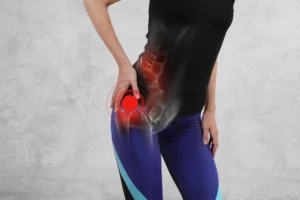Back pain is the most common condition we treat at Total Physiotherapy, which is no surprise given up to 80% of people will experience back pain at some time in their life.
Here we discuss some back pain myths and misconceptions and, most importantly, how to recover from an episode of back pain.
Back Pain Myth 1:
“Back pain is not caused by poor posture”: How we sit, stand and bend does not cause back pain even though these activities may be painful. A variety of postures are healthy for the back. It is safe to relax during everyday tasks such as sitting, bending and lifting with a round back. In fact, it’s more efficient!
Back Pain Myth 2:
“I have hurt my back, so I need to rest in bed”: For the first few days after hurting your back, avoid aggravating activities. A balance of rest and movement may relieve pain. Prolonged bed rest is associated with higher levels of pain, poorer recovery and greater absence from work so keeping active is key.
Back Pain Myth 3:
“I need an X-ray or scan to find out what is wrong with my back”: Imaging for back pain is indicated only in a small percentage of cases, as the research shows consistently that it is not always helpful with diagnosis or treatment. We know that many people with NO PAIN will have anatomical changes on a scan.
As you can see from the table below, if you took 100 people in their 50s WITH NO BACK PAIN, 80% would have degeneration of their discs, 60% would have a disc bulge, 50% would have facet joint degeneration (arthritic changes).

Back Pain Myth 4:
“If I don’t need a scan, how does the physio know what is wrong with my back?”: Physiotherapists are trained to accurately assess for serious causes of back pain. 90% of people presenting for treatment of back pain are classified as having non-specific lower back pain, where there is no one specific structure or pathology driving the pain. This is due to the fact research suggests it is not possible OR necessary to identify which specific tissue (e.g. disc, facet joint, muscle) is the source of pain in order to manage it effectively.
Back Pain Myth 5:
“More pain = more damage”: Logically you would think that the worse the pain, the worse the damage, however, this is not the case. There is substantial research that tells us that two people can have similar back problems but very different reports of pain. Factors such as poor sleep, stress, worry, low mood and inactivity can influence pain.
Back Pain Myth 6:
“Now I have hurt my back, it will be a problem forever”: While lower back pain can be very painful and restrictive initially, most people make a good and rapid recovery. There are some indicators that identify people who may experience longer term problems in the early stage of back pain. An assessment and the correct advice from your physio is often enough to help you on the path to recovery and avoid long term pain.
Back Pain Myth 7:
“Everyone has a different piece of advice for fixing my back – how do I know what to do?”: Friends and family will often swear by one technique or exercise but that may not be the best for you. Your physio will assess you and treat you with the techniques most likely to help your pain. The experienced team at Total Physio are up to date with the latest in evidence based practice for treating back pain.
Back Pain Myth 8:
“…and what are the best exercises?”: Your physio will explain the exercises most likely to help you recover and prevent recurrence of injury. Typically included are home exercises for flexibility, core control and strength. Walking, yoga and Pilates-based exercise programs such as those at Total Physiotherapy have all been shown to reduce back pain. Contrary to past thinking, resistance training using weights does not need to be avoided if you have experienced back pain. Your physio can advise on when to return to weights and advise on form and repetitions.
Back Pain Myth 9:
“I’ve tried everything and I still have pain – do I need surgery?”: Surgery is only necessary for a tiny proportion of those with back pain. Your physio will communicate with your GP if an opinion from a surgeon is required. Consulting a surgeon does not necessarily mean you will have surgery. Studies suggest that, on average, results from surgery are no better than conservative treatments such as physiotherapy, medication and exercise.
Contact Us
If you have any further questions regarding back pain or if you would like to book an appointment with a physiotherapist please call us today on 02 9907 0321 or click here to book online.


